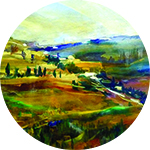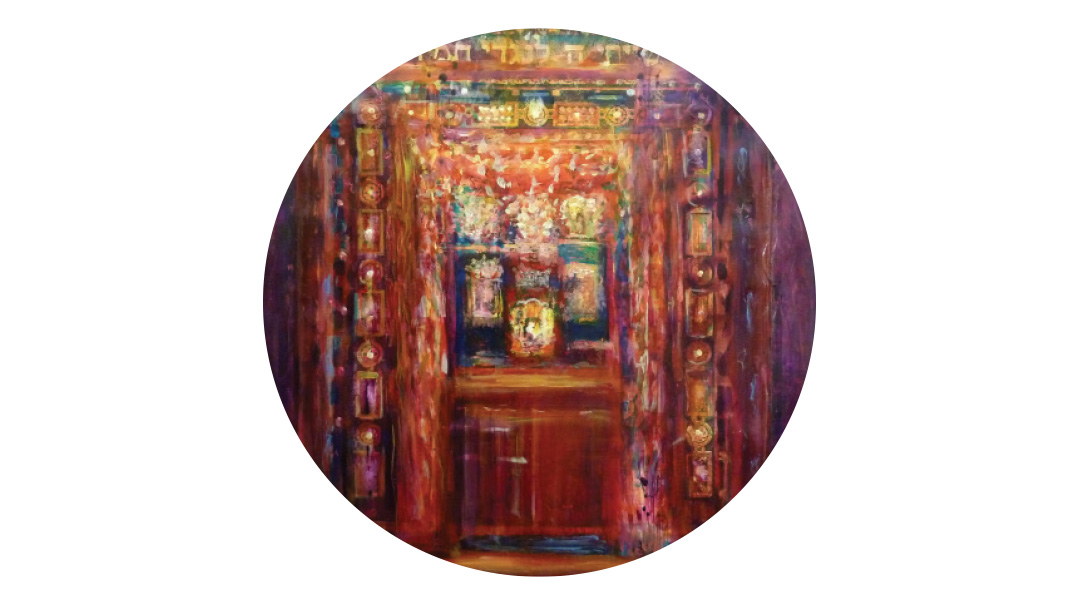Wholly Holy

Realize who you are and how you can impact this world

Holiness. The very word connotes asceticism and abstinence. But kedushah is different; it beckons us to understand that sanctity lies not only in what we don’t do but in every aspect of our lives.
“Kadosh, Kadosh, Kadosh” are the words sung by the celestial court of HaKadosh Baruch Hu. Yet here on earth, we recite these words as well — and as we do so, we rise, demonstrating that we too can aspire to reach those heavenly heights.
The famed Kotzker Rebbe ztz”l, with his renowned sharp reading into the world and its Torah, highlights the Torah’s wording in parshas Mishpatim, “And men of kodesh you shall be for Me.” The Torah does not command us to be angels — it says be men that are kodesh. And it does not say to be kodesh first — first it says to be men.
Elevated Through Thought
The precursor to being kodesh is being a mensch. The ish kodesh lives in This World with his feet planted firmly on the ground. As he strives to be closer to Hashem, he is considerate of the others in his life.
Kedushah, explains the Kotzker, can be explained as hazmanah, preparedness. By focusing your thoughts and connecting your actions to a higher plane, you will transform each part of your life.
Our lives are very full. From the moment we wake up until the moment we go to sleep, we are intimately aware of our bodies and their physical needs. We prepare foods, clean our belongings and bodies, and care for others.
Our thoughts can elevate every aspect of that care. When we realize that these same tasks were the ones Hashem performed for Adam and Chavah, we emulate Him while we run our households — making our homes a Garden of Eden.
In caring for ourselves we are also fulfilling the vital commandment of Devarim 4:15: “V’nishmartem me’od l’nafshoseichem —You should watch over your nefesh very much.” This teaches us that the word “nefesh” in this context is referring to the unit of body and soul. Rav Shimon Schwab points out that this is the only mitzvah that we are commanded to fulfill “me’od,” very much.
The neshamah yearns to serve Hashem — but it is dependent upon the body to do so. Caring for that body’s needs then becomes a spiritually necessary action. When we focus on this purpose, every element of self-care or caring for is elevated to a place of kedushah.
A Broad Life
In a famous responsa, Rav Yitzchok Hutner addresses a talmid who’d written to him after leaving yeshivah and entering the business world. The young man felt that he was leading a double life. Rav Hutner sharply corrects him: “Your life as you described it is not deemed a ‘double life,’ but a ‘broad life.’ ”
He describes the difference: An individual who lives a double life may live a nice suburban lifestyle, acting the part of the kindly neighbor during the week, while spending his weekends living a wild and raucous life in a nearby city’s hotels. Yet a person who lives in one house, but cooks in the kitchen, sleeps in the bedroom, eats in the dining room, is not leading a double life! He is leading a broad life.
When our life’s focus is kedushah, holiness permeates every facet of our lives, from tefillos whispered with intense kavanah to the mundane stresses of the workplace. Sometimes the kedushah is wrapped in so much muck and dirt that it can be hard to identify it — but we must know that it is always there.
Seeing Hashem in the DMV
Life often brings unexpected twists and turns. At times we end up in unanticipated places — the hospital, the airport, the department of motor vehicles — and conclude that this place, surely, is devoid of all kedushah. But this is clearly untrue. “Melo chol ha’aretz kevodo — the whole world is filled with His honor.” We must ask: Why am I here? How do I find Hashem here?
By searching for meaning and purpose in our actions, we can see Hashem everywhere. In the hospital with a sick relative? In addition to the mitzvah you get for caring for her, you are davening for her to be healed — so she can keep serving Hashem. In the airport about to embark on a vacation? Concentrate on the holiness of your goal. Will this vacation benefit your nefesh and invigorate the family members you are traveling with? How will it better your service to Hashem?
And yes, you can even find meaning in the DMV. Where will the ability to drive take you? How much more can you accomplish for your family and community when you can legally navigate on four wheels? The examples are endless.
Often, the kedushah in our actions is self-evident — yet we can still overlook it. We look forward to Shabbos all week — so that we can “sleep it away.” We rush to shul harried and come back even more stressed. We can even stand by the Kosel, the one and only remaining wall that surrounded the Beis Hamikdash, and fail to tremble.
The Torah prods us: “Kedoshim tiheyu ki kadosh Ani.” I can hear the Torah Avenue of my childhood singing, “I am holy and so you must be.” Rav Shimshon Pincus quotes Rashi’s interpretation: “Be separate from immorality,” and the Ramban’s: “Make yourself holy with what is permitted to you.”
He poses a fundamentally simple and profound question: Are not many of the prohibitions in morality listed here inherently repugnant? Would it not suffice for the Torah to list them as assur? Why must the Torah warn us, “Be holy because I am”?
Truthfully, man’s natural proclivity is to desire all sorts of forbidden things. The only way to harness that inborn yetzer hara is to live a life of Torah and kedushah. “Hashem created the yetzer hara and He created the Torah as its spice.” Torah is the antidote to the illness of our lust and passions.
Midrash Tanchuma states, “Said Hashem to Yisrael, ‘Since you had been designated to serve Me before I even created the world, continue to make yourselves holy just as I am Holy.’ ” Our potential for kedushah is the reason that Hashem deemed this world worth creating! Realize who you are and how you can impact this world.
Boundless Holiness
Rav Pincus cites a parable from the Dubno Maggid to further illustrate this point: In a simple village, the local gvir had a daughter he wanted to marry off. As was typical, he traveled to a renowned yeshivah and asked the rosh yeshivah to recommend the “best” masmid for his daughter. Sure enough, a fine young man was recommended. The couple met, married, and returned to the wife’s hometown.
Lo and behold, to the sweet young bride’s dismay, her esteemed chassan typically slept late, opened a sefer for a few minutes, went for a walk, came home for a nap. Imagine the wealthy man’s shock and chagrin when he realized what was transpiring in his “masmid’s” home. He immediately confronted his son-in-law, who shamelessly retorted, “I am certainly learning more than anyone in this entire town.”
“No, my son,” replied the man, “that is not why I selected you as husband for my daughter. You were the best in your yeshivah that consisted of talmidim of your caliber. I found you there. It is incumbent upon you to be the same masmid that you were there.”
Similarly, the Torah is telling us that the kedushah we possess has no relationship to place, time, or our surroundings. Don’t look at what is disgusting in the world and feel that your actions are comparatively praiseworthy. Hashem says, “You are holy because I am!” Hashem’s kedushah is not bound by time or space; ours is boundless as well.
Michtav MeEliyahu (3:92) cites the gemara in Yoma 39: The rabbanim teach: “If a person sanctifies himself a little, he is sanctified a lot. If he sanctifies himself below in This World, he is sanctified greatly for the World to Come.”
“Open for me but the eye of a needle,” Hashem entreats us, and He will “open for us a grand ballroom.” The yetzer hara attempts to build an iron wall between us and our potential. But if we attempt to whittle away at that wall, Hashem will surely help us break it.
Your neshamah is the most elusive part of you — but it is also the most alive. Find it, listen to it, and follow its call: “You are holy because He is your Source!”
Originally featured in Family First, Issue 588. Rebbetzin Aviva Feiner is the rebbetzin of Congregation Kneseth Israel (The White Shul), and menaheles of Machon Basya Rachel Seminary, both in Far Rockaway.
Oops! We could not locate your form.







